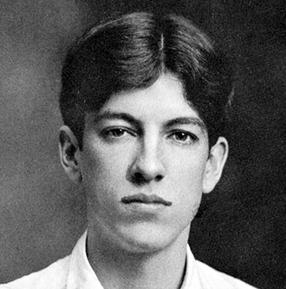On July 1, 2016, I published a post about the Battle of the Somme, one of the greatest military disasters of all time. The battle lasted four and a half months, claimed more than a million casualties on both sides. The British and French forces gained a total of six miles of mud.
I’m reposting the section which outlined the story of Alan Seeger, Pete Seeger’s uncle, who was a young poet and expat in Paris in 1914. He loved France so much that he joined the Foreign Legion to defend his adopted land. His unit went into battle at 4:00 pm on July first and Alan did not survive.
From the original post:
The first American casualty of the first world war was Alan Seeger, a 28 year old poet. Seeger graduated Harvard in 1910, spent two years in Greenwich Village, and then moved to Paris, where he thrived in the bohemian atmosphere of the Left Bank. When war broke out, he joined the French Foreign Legion to defend the land he loved so much.
In his last letter, dated June 28, 1916 Seeger said:
“We go up to the attack tomorrow. This will probably be the biggest thing yet. We are to have the honor of marching in the first wave. I will write you soon if I get through all right. If not, my only earthly care is for my poems.”
Seeger did not advance with the first wave; his regiment was held in reserve until 4:00 pm on July 1, then ordered to advance on the village of Belloy-en-Santerre. His friend, John Keegan, wrote in his diary: “How pale he was! His tall silhouette stood out on the green of the cornfield. He was the tallest man in his section. His head erect, and pride in his eye, I saw him running forward, with bayonet fixed. Soon he disappeared and that was the last time I saw my friend.”
These prophetic lines are from one of Seeger’s last poems, “I Have a Rendezvous with Death.”

God knows ’twere better to be deep
Pillowed in silk and scented down,
Where love throbs out in blissful sleep,
Pulse nigh to pulse, and breath to breath,
Where hushed awakenings are dear…
But I’ve a rendezvous with Death
At midnight in some flaming town,
When Spring trips north again this year,
And I to my pledged word am true,
I shall not fail that rendezvous.
From “I Have A Rendezvous with Death” by Alan Seeger
Between July 1 and November 18, 1916, there were 420,000 British, 200,000 French, and 500,000 German casualties along the Somme. Though we only know and can tell a few of those stories, it is good to do so at the time of this centennial. Lest we forget their sacrifice. And lest we again entertain the delusion that a war can end all wars…






